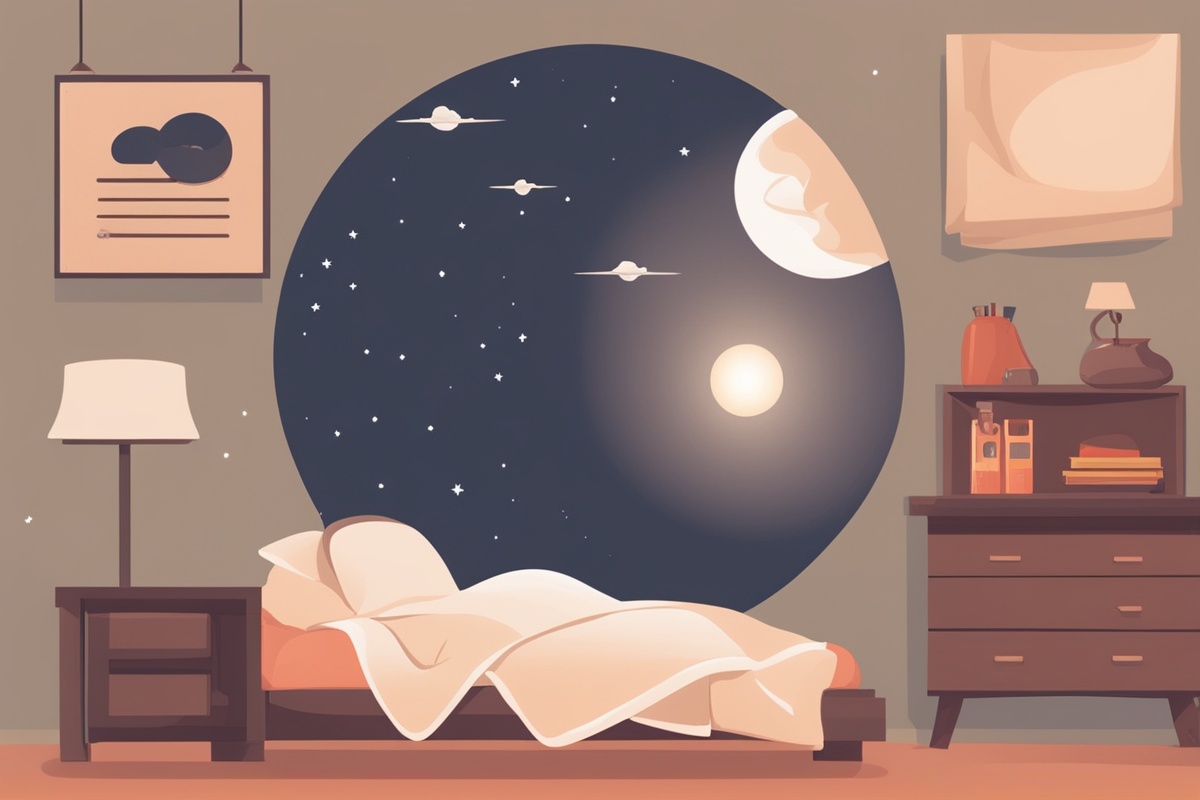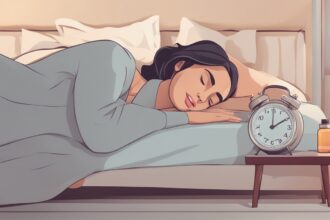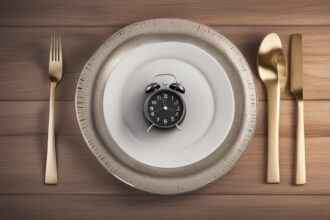Hey there, fellow health enthusiasts! If you’ve ever wondered how fasting could do more than just help with weight management, you’re in for a treat. Today, we’re diving deep into the fascinating connection between fasting and sleep. Specifically, we’ll explore the fasting sleep benefits and how this ancient practice can transform your nightly rest into a powerhouse of recovery and rejuvenation. Whether you’re a seasoned faster or just curious about intermittent fasting (IF), stick around to learn how skipping a meal or two might be the key to waking up refreshed. Let’s unpack the science, share practical tips, and get you on the path to better sleep through fasting.
What Is Fasting, and How Does It Relate to Sleep?
fasting, at its core, is the voluntary abstinence from food and sometimes drink for a set period. Popular methods like intermittent fasting—think 16:8 (16 hours fasting, 8 hours eating)—have gained traction for their potential health perks, from weight loss to improved metabolic health. But here’s where it gets interesting: fasting doesn’t just impact your waistline; it can also influence your sleep quality. Research suggests that fasting may regulate circadian rhythms, the internal clock that governs when you feel sleepy or alert (Walker, 2017). By aligning your eating patterns with your body’s natural cycles, fasting could help you fall asleep faster and enjoy deeper rest. So, if you’ve been tossing and turning at night, tweaking your eating schedule might just be the missing piece of the puzzle.
The Science Behind Fasting Sleep Benefits
Let’s get nerdy for a moment and break down why fasting might be a game-changer for your sleep. One of the key fasting sleep benefits lies in how it affects hormones like melatonin and cortisol. Melatonin, often called the “sleep hormone,” signals to your body that it’s time to wind down. Studies show that fasting can enhance melatonin production by reducing late-night insulin spikes that occur from eating close to bedtime (Peuhkuri et al., 2012). On the flip side, fasting may lower cortisol, the stress hormone that keeps you wired when you should be snoozing. Additionally, fasting promotes autophagy—a cellular cleanup process—that may reduce inflammation and support brain health, indirectly improving sleep (Mattson et al., 2017). These mechanisms together suggest that fasting isn’t just about skipping meals; it’s about syncing your body for optimal rest.
How Fasting Impacts Sleep Quality and Patterns
Ever noticed how a heavy meal late at night leaves you feeling sluggish yet unable to sleep? That’s because digestion demands energy, pulling resources away from rest. One of the standout fasting sleep benefits is that it gives your digestive system a break, allowing your body to focus on repair and recovery during sleep. Research indicates that time-restricted eating, a form of intermittent fasting, can improve sleep efficiency—the percentage of time in bed actually spent asleep (Moro et al., 2016). Some fasters report falling asleep faster and experiencing fewer nighttime awakenings. However, it’s worth noting that the initial adjustment to fasting might temporarily disrupt sleep as your body adapts to new eating windows. Hang in there; the long-term gains could be worth it!
Practical Tips to Maximize Fasting Sleep Benefits
Ready to harness the power of fasting for better sleep? I’ve got you covered with some actionable advice. Fasting isn’t a one-size-fits-all approach, so it’s important to tailor it to your lifestyle while prioritizing rest. Here are a few ways to get started with intermittent fasting for sleep improvement:
- Start with a gentle fasting schedule, like 12:12, to ease your body into the routine without shocking your system.
- Avoid eating at least 2–3 hours before bed to prevent digestive discomfort and insulin spikes that can disrupt sleep (Peuhkuri et al., 2012).
- Stay hydrated during fasting windows, as dehydration can lead to fatigue and poor sleep quality.
- Pair fasting with a consistent bedtime routine to reinforce your circadian rhythm.
Remember, the goal is to experiment and find what works for you. If hunger pangs keep you up at night, consider adjusting your eating window or consulting a nutritionist for personalized guidance.
Potential Challenges of Fasting and Sleep
While the fasting sleep benefits are exciting, it’s not all smooth sailing. Some people experience hurdles when they first start fasting, especially when it comes to rest. Hunger can be a real sleep thief, particularly if you’re not used to going to bed on an empty stomach. Low blood sugar levels during fasting might also cause irritability or restlessness for beginners (Harvie & Howell, 2017). And let’s be honest—changing your eating habits can be stressful, which might temporarily spike cortisol and mess with your shut-eye. The good news? These issues often fade as your body adjusts. To minimize disruptions, ease into fasting gradually and listen to your body’s signals.
Who Should Be Cautious with Fasting for Sleep?
fasting isn’t for everyone, especially when it comes to optimizing sleep. Certain groups should approach it with caution or avoid it altogether. If you’re pregnant, breastfeeding, or managing a chronic condition like diabetes, fasting could pose risks and should only be done under medical supervision (Harvard Medical School, 2020). Similarly, if you have a history of disordered eating, fasting might trigger unhealthy patterns. Here are a few red flags to watch for when combining fasting and sleep goals:
- Persistent fatigue or dizziness during fasting windows, which could signal low energy affecting sleep.
- Increased anxiety or stress around food, potentially worsening insomnia.
- Difficulty maintaining a balanced diet within eating windows, leading to nutrient deficiencies.
- Existing sleep disorders like sleep apnea, which may require separate treatment.
If any of these resonate with you, chat with a healthcare provider before jumping on the fasting bandwagon. Your health and sleep should always come first.
So, what’s the verdict on fasting and sleep? The fasting sleep benefits are real and backed by science, offering a promising way to enhance rest, regulate hormones, and boost overall wellness. From improving sleep efficiency to supporting your body’s natural rhythms, intermittent fasting could be the holistic tool you’ve been looking for. That said, it’s not a magic bullet—success depends on finding the right balance and being patient with the process. Start small, stay consistent, and don’t hesitate to seek professional advice if needed. Here’s to better sleep and brighter mornings, one fast at a time!
References
- Harvard Medical School. (2020). Intermittent fasting: What is it, and how does it work? Harvard Health Publishing.
- Behavioral Sciences, 7(1), 4. https://doi.org/10.3390/bs7010004
- Mattson, M. P., Longo, V. D., & Harvie, M. (2017). Impact of intermittent fasting on health and disease processes. Ageing Research Reviews, 39, 46–58. https://doi.org/10.1016/j.arr.2016.10.005
- Moro, T., Tinsley, G., Bianco, A., Marcolin, G., Pacelli, Q. F., Battaglia, G., … & Paoli, A. (2016). Effects of eight weeks of time-restricted feeding (16/8) on basal metabolism, maximal strength, body composition, inflammation, and cardiovascular risk factors in resistance-trained males. Journal of Translational Medicine, 14(1), 290. https://doi.org/10.1186/s12967-016-1044-0
- Peuhkuri, K., Sihvola, N., & Korpela, R. (2012). Diet promotes sleep duration and quality. Nutrition Research, 32(5), 309–319. https://doi.org/10.1016/j.nutres.2012.03.009
- Walker, M. P. (2017). Why we sleep: Unlocking the power of sleep and dreams. Scribner.






